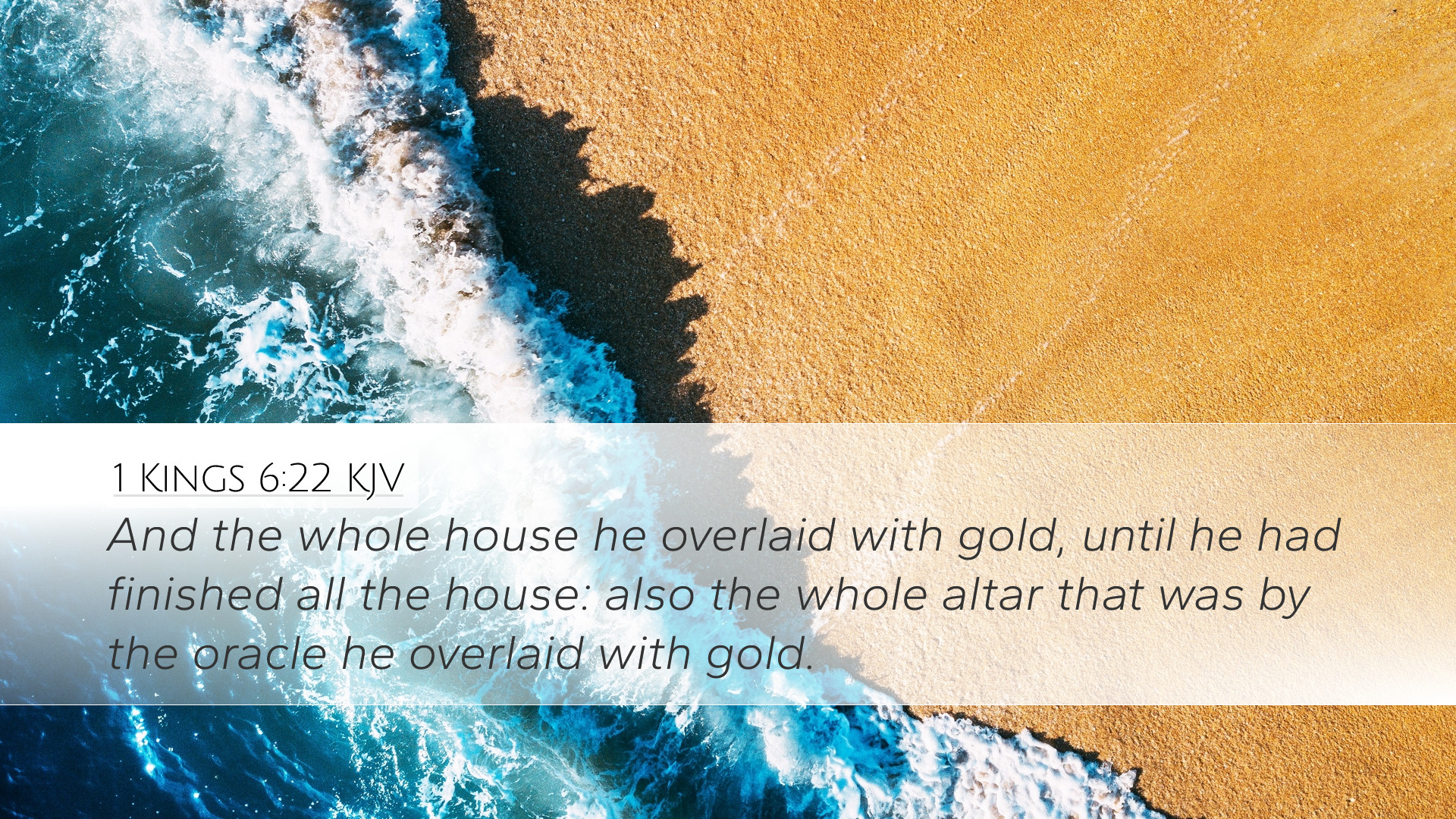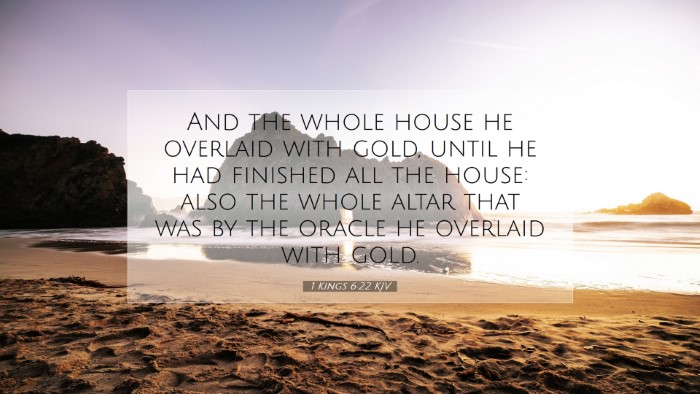Commentary on 1 Kings 6:22
1 Kings 6:22 states: "And the whole house he overlaid with gold, until he had finished all the house: also the whole altar that was by the oracle he overlaid with gold." This verse encapsulates the grandeur of Solomon's temple, signifying both the physical and spiritual significance of the house of God.
Overview
This verse illustrates the culmination of Solomon's labor in constructing the temple, emphasizing the splendor and sanctity of the dwelling place of the Lord. The use of gold in the temple's construction is symbolic of divine glory, holiness, and the value placed on worship.
Theological Insights
- Divine Majesty: The extensive use of gold signifies the majesty of God. As noted by Matthew Henry, the opulence of the temple reflects the honor due to God and the splendor of His presence.
- Holiness of Worship: The entire structure, including the altar, being overlaid with gold highlights the need for purity and holiness in worship. Albert Barnes emphasizes that the altar, where sacrifices were made, must be approached with reverence and purity.
- Symbolism of Gold: Gold is often a symbol of purity, value, and eternity in Scripture. As Adam Clarke explains, the gold signifies the enduring nature of God's covenant with His people.
Linguistic and Historical Context
The Hebrew word used here for "overlay" implies a thorough covering, suggesting that the entire structure was enveloped in golden luster, which symbolizes the presence of God enveloping His people.
The context of Kings provides insight into the importance of the temple as a central place for worship in Israel. Solomon's temple was not just a physical structure but also a theological statement about God's relationship with His people.
Commentary from Public Domain Sources
According to Matthew Henry, this act of overlaying the temple with gold had multiple layers of significance:
- Glory of God: The temple's beauty and splendor reflects God's intrinsic glory and His worthiness of such honor.
- Implication for Worship: The emphasis on gold conveys that worship should be conducted with the utmost reverence and seriousness, recognizing God’s holiness.
Albert Barnes provides further depth, noting that the altar's overlay with gold illustrates the fundamental importance of atonement and sacrifice in biblical worship. It points to Christ as the ultimate sacrifice, foreshadowing New Testament realities.
Adam Clarke also comments on the significance of such extravagant expenditure. He posits that the wealth dedicated to the temple should challenge believers to consider their own commitments to God’s house and service today.
Practical Applications
- Worship and Dedication: Believers are called to create an environment of worship that reflects the holiness of God, akin to the gold overlay on the temple.
- Faith and Generosity: The commitment to provide generously for God’s work is a reflection of one’s gratitude and reverence toward God.
- Value of Holiness: In light of the symbolic use of gold, Christians ought to pursue holiness in their personal lives and corporate worship, striving to present themselves as living sacrifices (Romans 12:1).
Conclusion
1 Kings 6:22 provides rich theological insights that extend far beyond the physical structure of Solomon's temple. It challenges us to reflect on the nature of worship, the commitment required to honor God, and the implications of His holiness in our lives. As modern believers, this passage encourages us to reassess our priorities, cultivate holiness, and engage in sincere worship that truly reflects the glory of God.


